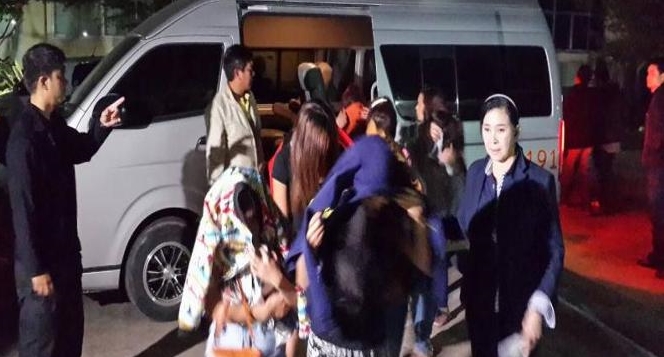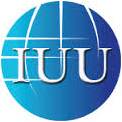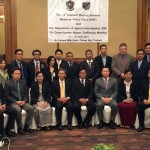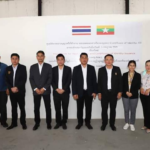
Trafficking of mostly women and girls into the sex industry is one of the most insidious forms of human trafficking. More than one half of all recorded human trafficking cases in Thailand involve trafficking for the purposes of commercial sexual exploitation.
Thailand’s government is determined to tackle this problem at its root causes. Several measures and programs are being implemented. These programs are aimed at groups described as most vulnerable to prevent them from falling prey to traffickers intent on luring victims into sexual slavery.
At the policy level, laws have been amended to tighten restrictions and eliminate loopholes employed by criminals and traffickers. Among the existing laws and acts that have been strengthened are the Prevention and Suppression of Prostitution Act, the Anti-Trafficking in Persons Act, and the Labor Protection Act.
Last week, the National Legislative Assembly voted unanimously to accept the bill aiming to strengthen the Anti-Trafficking in Persons Act, which will over the next 30 days be considered article by article by a legislature’s panel. This bill, among others, is aimed to increase penalties for those convicted of human trafficking by imposing a life imprisonment on those who cause the deaths of victims; empower the authorities to suspend permits or operation of businesses, including factories and vessels, which are found benefitting from or involved in trafficking in persons; provide for protection of people who report to the authorities on suspected human trafficking incidents, stipulating that if doing so in good faith, they will not be liable to civil or criminal charges; and allow transfer of assets confiscated in human trafficking cases to the Anti-Trafficking in Persons Fund (which is used to compensate victims and support implementation of projects aiming to prevent and suppress trafficking in persons).
At the enforcement level, more widespread and vigorous inspections have been launched of venues and workplaces suspected of involvement in trafficking and sexual exploitation. Inspectors have been better trained to be able to identify victims of trafficking and commercial sexual exploitation.
One Stop Crisis Centers have also been established to provide immediate assistance to the victims of human trafficking. Furthermore, the measure undertaken by the Thai government have been designed to produce long-term positive outcomes as opposed to headline-grabbing quick fixes that may not be sustainable.
Providing better life opportunities are among the best root-cause approaches to preventing vulnerable people from falling into the hands of procurers and traffickers. To support this, the government has expanded compulsory education, included life-skills education in public schooling, is adopting poverty-reduction strategies to improve the socioeconomic status of vulnerable groups, and is demanding cleaner and stricter law enforcement.
This past month, the Thai government imposed tougher immigration regulations at ports of entry to prevent cross-border human trafficking, which is a transnational crime. Unaccompanied Laotian minors, for example, are now prohibited from entering Thailand at the Thai-Laos Friendship Bridge and other border crossings.
This prohibition was an immediate response to increasing reports of young people from Laos and other neighboring countries being trafficked to Thailand, and is just one of several measures taken by the government to address this particular aspect of the human trafficking problem.
The Thai government is committed to taking the lead on ending trafficking in persons through a broad range of policies and more robust implementation. Public awareness has been raised, and government agencies have been ordered to tighten regulations and prioritize the fight against trafficking.
Government alone, however, cannot solve this problem. Constructive engagement with and cooperation from all other stakeholders, including civil society and the private sector, are essential to help bring an end to human trafficking and commercial sexual exploitation.
Report any human trafficking activities in Thailand at “1300 Hotline” or contact “info@thaianti-humantraffickingaction.org”.
By Pojjana Theswattana




